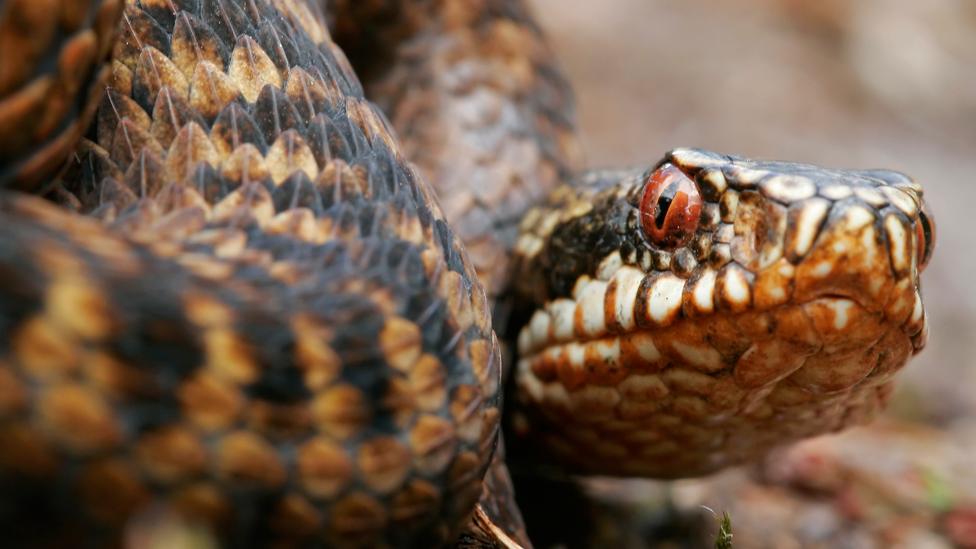Snakes: Don't be alarmed by more Bridgend sightings, council says
- Published
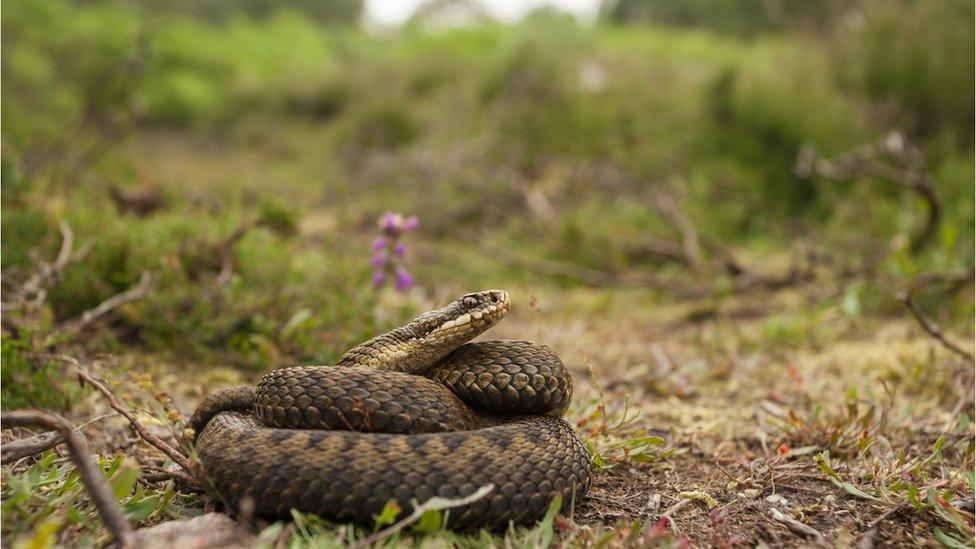
Adders, native to the UK, are venomous but rarely life-threatening
People should not be alarmed by an increased number of snake sightings, a council has said.
Sightings have been reported around Bridgend county, but particularly in the Rest Bay area of Porthcawl.
A woman whose dog was bitten by an adder has said she would not take her dogs near long grass.
A Cardiff University snake expert said we should be "celebrating, not fearing" the animals, but urged dog owners to be cautious.
Bridgend council has reassured residents there is "very little risk of harm" from native snake species.
The council reported sightings of adders and grass snakes, both native to the area. Adder bites are venomous, but rarely life-threatening.

Molly Simmons owns three Spaniels, and will now only walk them on the beach
Molly Simmons, 75, from Porthcawl said she is reluctant to take her three Welsh springer spaniels anywhere near long grass after one of her dogs was bitten by an adder.
She said: "My dog was bitten a number of years ago and she spent all day on an anti-venom drip in the vets. I've seen adders several times, so I have decided to stay away from the dunes."
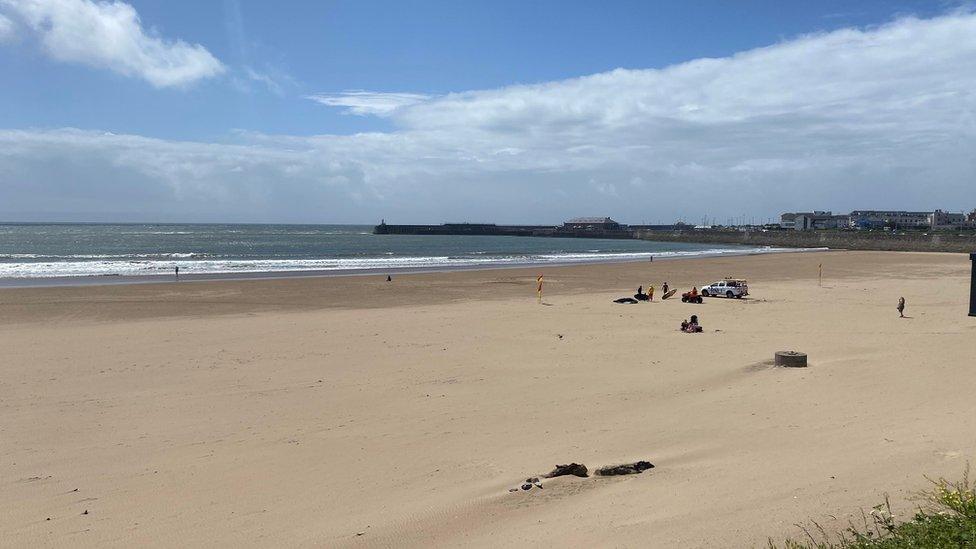
Snakes have been spotted at Rest Bay in Porthcawl
Ms Simmons added: "Now I just walk on the beach, as my nosey spaniels are particularly susceptible to being bitten. People are walking there and perhaps don't realise the dangers to their dogs."
Due in part to their inquisitive nature, dogs are particularly prone to snake bites, according to Dr Rhys Jones, associate professor of evolutionary biology at Cardiff University.
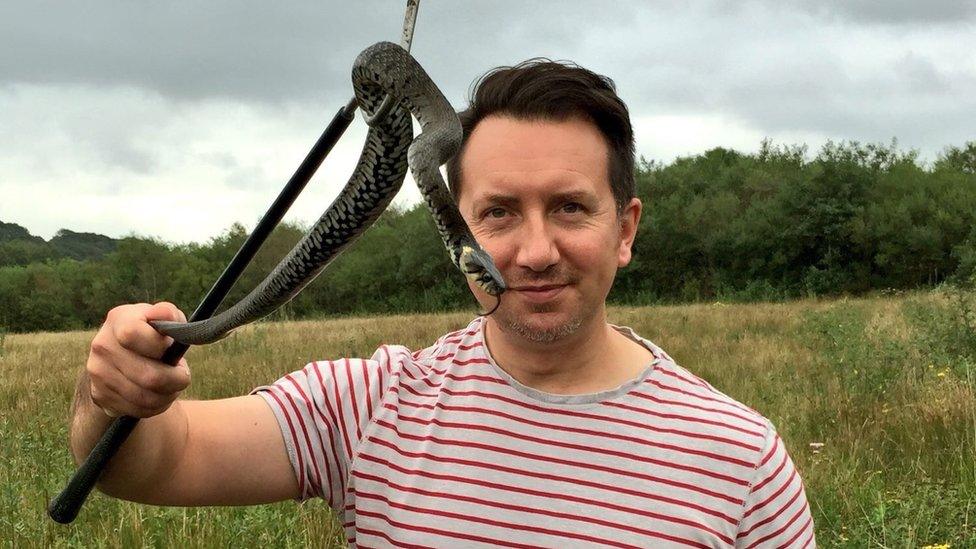
Dr Rhys Jones has been handling snakes for 37 years
"Their venom is quite potent to them," Dr Jones explained.
"But, if they do get bitten, it's all about not panicking at all, always keep your dog on a lead for their protection and the protection of the snake."
Dr Jones said he believed there had been more sightings recently due to more people being outdoors due to the warm weather, not necessarily because there are more snakes.
"Most people - when you've got warm weather - are likely to go out for a picnic or a walk, so they naturally will be more likely to see them," he added.
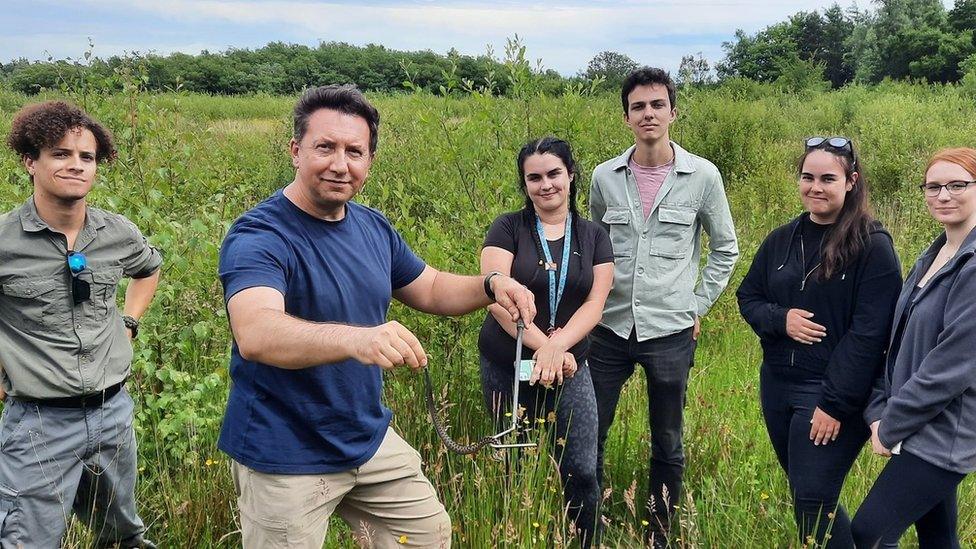
Dr Jones is an expert on British snakes
He urged people to enjoy the experience of seeing snakes in their local area, rather than being afraid.
"It's quite a magical encounter to see one, it's something very few people get to see," he said.
"A venomous animal does not equate to a vicious animal. The adder is something we should be celebrating, not fearing."

What should you do if you are bitten by a snake?
Seek medical treatment immediately
Keep the bitten body part as still as possible to prevent the venom from spreading around your body
Remove any watches or jewellery from bitten limbs
Remain calm - snake bites in the UK are only very rarely deadly
Source: NHS

Bridgend council said it had received more reports of snakes than was usual.
"We want to reassure residents that this is entirely natural, and there is very little risk of harm from native species," a spokesperson said.
Of the UK's native reptile species, four are present in Bridgend: grass snakes, adders, the slow-worm and the common lizard.
The Wildlife and Countryside Act protects reptile species, and makes it an offence to intentionally kill or injure reptile species.
Related topics
- Published12 May 2022
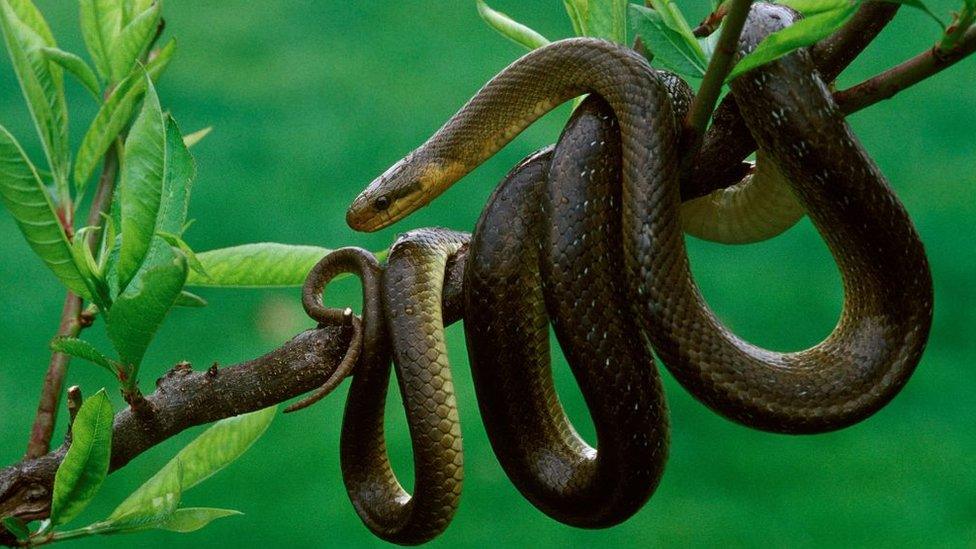
- Published12 August 2019
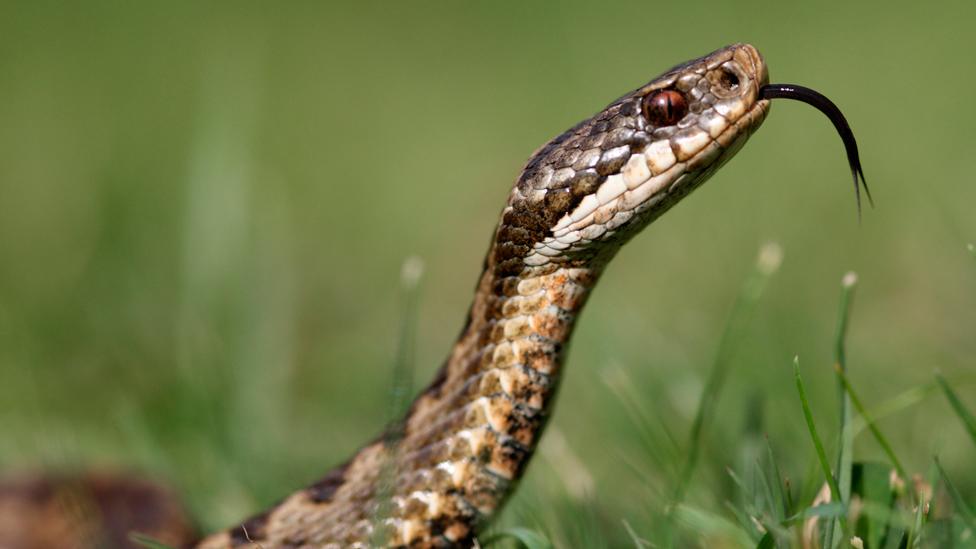
- Published23 October 2018
